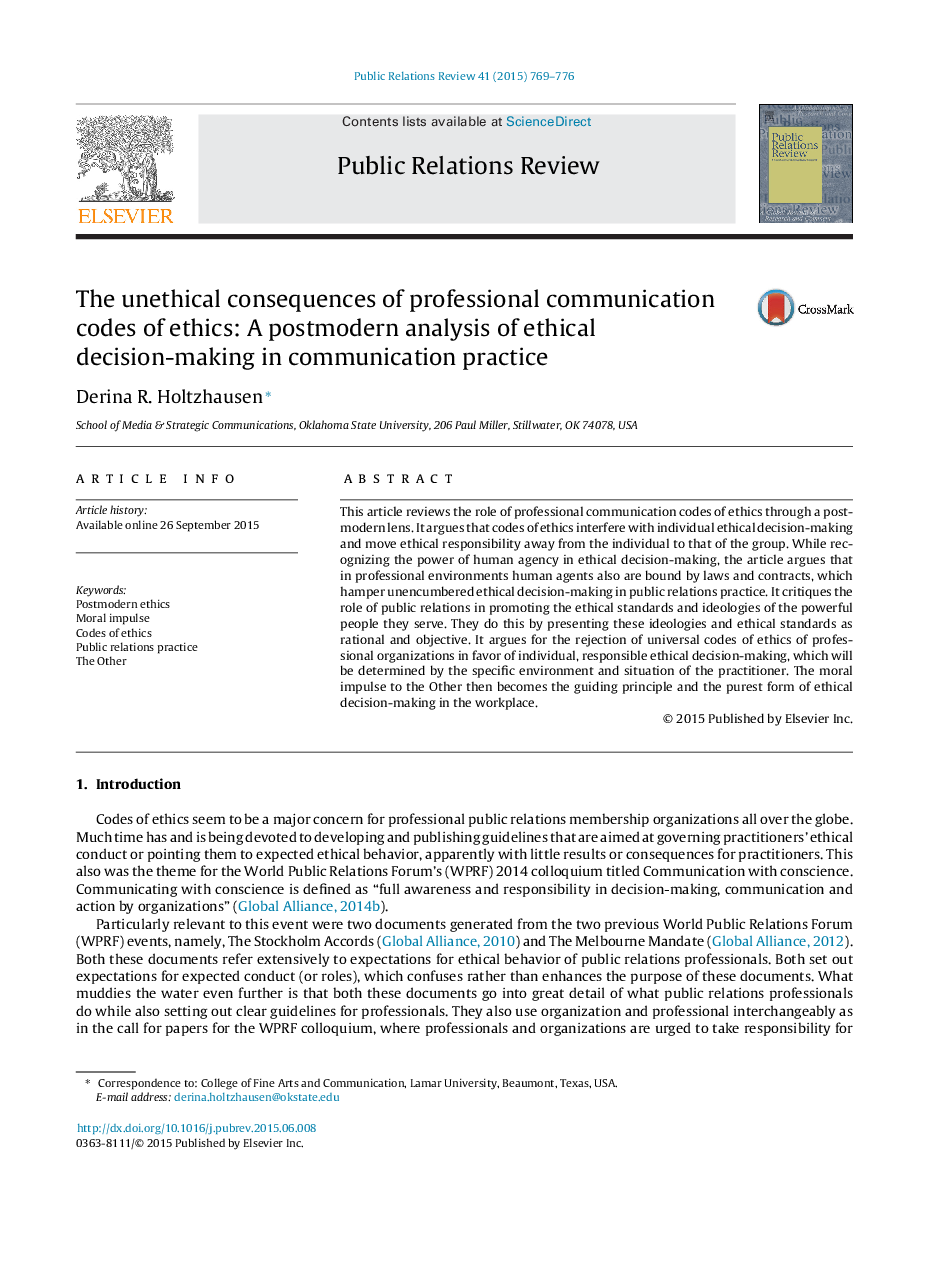| کد مقاله | کد نشریه | سال انتشار | مقاله انگلیسی | نسخه تمام متن |
|---|---|---|---|---|
| 138695 | 162470 | 2015 | 8 صفحه PDF | دانلود رایگان |
• Professional codes of ethics are only useful as a statement of intent to practice communication ethically.
• They cannot be enforced and are unclear in that they confuse practitioner roles with ethics.
• The universality of codes of ethics cannot provide ethical guidelines for the nuanced and situational nature of communication practice in the 21st century.
• Codes of ethics relieve practitioners from the need to take personal responsibility for their ethical decision-making.
• Practitioners should allow the Other to activate their moral impulse and react accordingly.
This article reviews the role of professional communication codes of ethics through a postmodern lens. It argues that codes of ethics interfere with individual ethical decision-making and move ethical responsibility away from the individual to that of the group. While recognizing the power of human agency in ethical decision-making, the article argues that in professional environments human agents also are bound by laws and contracts, which hamper unencumbered ethical decision-making in public relations practice. It critiques the role of public relations in promoting the ethical standards and ideologies of the powerful people they serve. They do this by presenting these ideologies and ethical standards as rational and objective. It argues for the rejection of universal codes of ethics of professional organizations in favor of individual, responsible ethical decision-making, which will be determined by the specific environment and situation of the practitioner. The moral impulse to the Other then becomes the guiding principle and the purest form of ethical decision-making in the workplace.
Journal: Public Relations Review - Volume 41, Issue 5, December 2015, Pages 769–776
